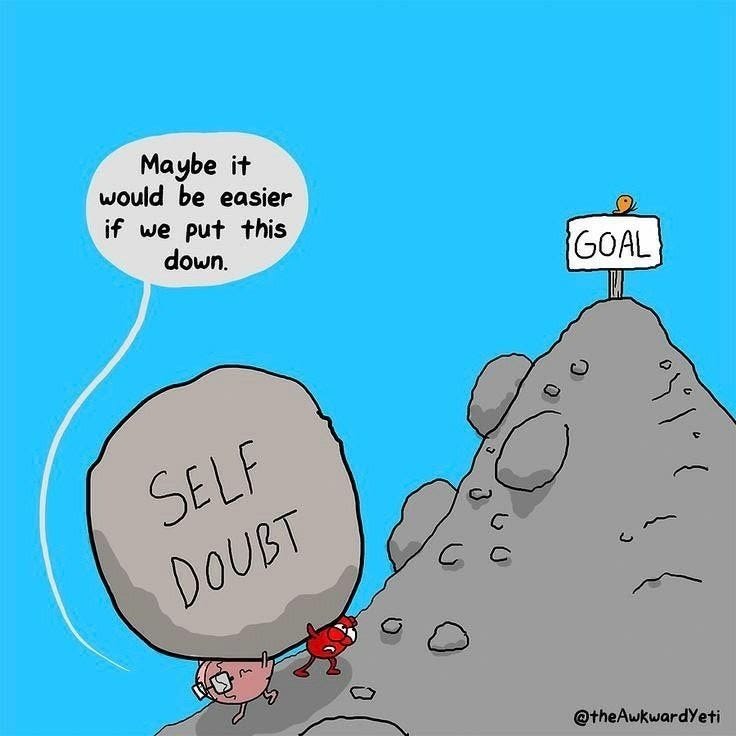
by Dr Alan Goldberg of competitivedge.com
There is a tendency in the world of sports to be “tough” and put on a brave face no matter what, to push yourself through obstacles with force, and to keep yourself moving because the alternative of slowing down might mean that you’re “falling behind.” But the problem with that full-speed-ahead approach is that it’s bound to burn you out in the long run, and it’s not going to help you mature as an athlete.
Real Mental Toughness requires slowing down both physically and mentally.
Many of the techniques I teach, such as controlling your eyes and ears, staying focused in the NOW, and emphasizing the process over the outcome are a unique way of applying the concept of mindfulness to sports. But if you really want to grow as an athlete it’s helpful to understand the broader definition of mindfulness and apply it to life both on and off the field so that you can benefit in multiple ways.
So what is mindfulness?
If you’ve ever time-travelled in your head and got distracted with thoughts while your body was doing something on autopilot then that’s a good example of what mindfulness is NOT, and what it aims to address. When “the lights are on but nobody’s home” so to speak, you are not doing whatever it is you’re doing to your full capacity.
If you’re in practice and thinking about how you really need to win the next game, how embarrassed you are about some mistake you made in the past, or how you’re failing chemistry then your concentration will suffer because your body and mind are in two separate places. Mindfulness helps bring the two back together so that you have more focus, clarity, and are able to perform better.

It’s a concept rooted in the Buddhist tradition that basically asks that you bring more conscious attention to what you’re doing in that moment. Whether you’re brushing your teeth, having a laugh with family, or stretching pre-performance, being mindful means keeping your thoughts only in that action rather than allowing them to wander elsewhere.
Let’s take the example of stretching. Doing it mindfully means fully feeling your body with a quiet mind. If it helps you can “think” about how a certain muscle group feels when you’re stretching it, imagine tense areas relaxing, and really appreciating how your body allows you to engage in a sport you love. That’s it. If you start to think about other things then just bring your attention back to the stretch, no need to self-criticize for those wandering thoughts, just bring your attention back and continue with the mindful action. Try mindfulness when you do other things too, like walking, eating, playing with your dog, etc.
The more you get in the habit of doing all sorts of things mindfully the easier it will be for you to access the concentration necessary to reach peak performance when it’s crunch time!
Now here’s another practice that will improve your performance: meditation.
Stay with me here, this isn’t woo-woo stuff, I’m not asking you to dance in the forest and go on a shamanic journey. Meditation is a scientifically proven effective strategy that helps increase mental functions, lower stress, and even improve resilience to adversity. And if I’m not enough to convince you then consider this: some of the most successful athletes like Kobe Bryant, Joe Nameth, Arthur Ashe, Barry Zito, Lebron James, Derek Jeter, and many others meditate. It worked out pretty well for them so you might as well give it a try!
Meditation is both incredibly simple and very difficult at first. Here’s what you do: sit and do nothing!
You can start with 5 or 10 minutes every day, and choose a time of day where you can do it consistently. Mornings tend to be best but you should prioritize consistency, so if you’re not a morning person then try afternoons or evenings. Sit down on a cushion on the floor or in a chair, close your eyes, and just focus on your breathing. That's all, just focus on your breathing. Without altering your breath in any way, feel the breath come in and then the breath go out. If there's a pause between breaths, notice the pause. As thoughts come in, label them, "thinking," and immediately bring your focus back to your inhale and your exhale. Use a timer so you don't have to keep checking the clock.
Mental Toughness is all about training your mind and these techniques will go a long way in helping you reach a new level of performance.

 Regardless of how talented, fast, or experienced, there may be one common area where swimmers struggle – self-doubt. Whether during practice or behind the blocks, we sell ourselves short by thinking we are not capable of reaching our highest potential. Self-doubt can creep into your head when you least expect it. For example, being given an interval or goal time that seems unattainable and your mind is already thinking “There’s no way I can do that.”
Regardless of how talented, fast, or experienced, there may be one common area where swimmers struggle – self-doubt. Whether during practice or behind the blocks, we sell ourselves short by thinking we are not capable of reaching our highest potential. Self-doubt can creep into your head when you least expect it. For example, being given an interval or goal time that seems unattainable and your mind is already thinking “There’s no way I can do that.”
